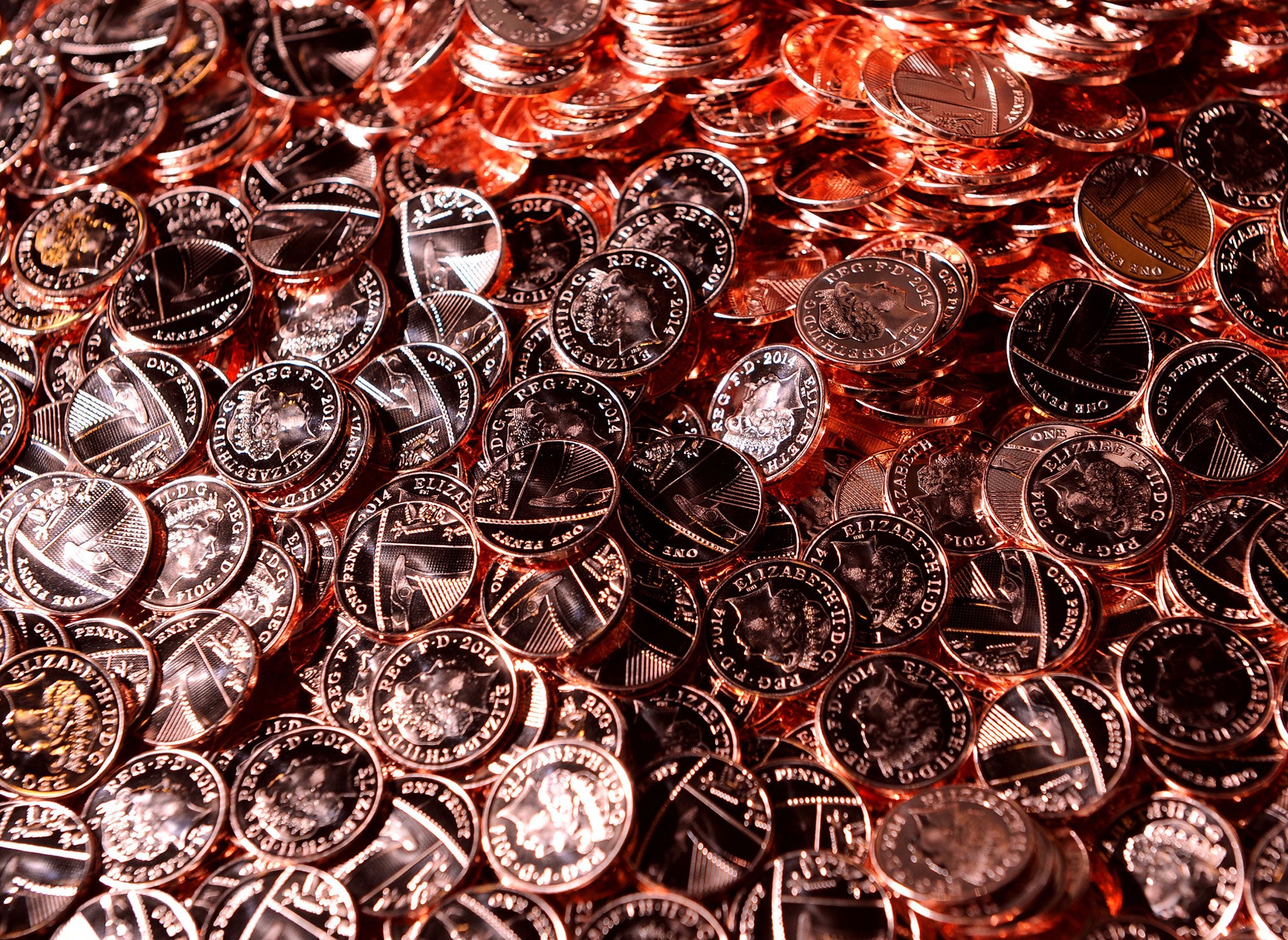Bank of England says scrapping 1p and 2p coins won’t cause shop prices to rise
Retailers would simply round the overall bill up or down but this would not cause inflation, BoE says

The Bank of England has bolstered the case for scrapping 1p and 2p coins by saying the move would not cause inflation.
Some have suggested that removing the copper coins from circulation would cause prices to rise as retailers round up prices to the nearest pound.
But in a new paper published on Wednesday, analysts at the BoE said the “overwhelming weight of literature and experience, suggests it would have no significant impact on prices”.
The inflationary argument is “deeply flawed on a number of levels”, the BoE said. Without pennies, sellers would round up or down cash transactions to the nearest 5p when they put through the final bill rather than changing the prices of individual items, the Bank said. Many countries have implemented this system and not experienced inflation.
The penny had become less useful compared to the cost of making it as inflation has eroded its value, with six out of every ten 1p and 2p coins now used just once before they drop out of circulation – into jars, down the back of the sofa or simply lost.
The BoE said the impact of withdrawing the coins would be further lessened by the fact that a large number of transactions are now processed on card meaning they do not need to be rounded up or down.
In any case, fewer items now have prices ending 99p meaning there are fewer instances where rounding up or down would be required, the BoE said. Roughly 70 per cent of prices in the UK already end in a zero or five, and so wouldn’t need rounding at all.
Production of 1p and 2p coins by the Royal Mint has already fallen sharply, with 288 million minted in 2016-17 compared to around 500 million the year before.
In March, the Treasury opened a call for evidence on the question of whether to retain 1p and 2p pieces as part of a review of the future of cash and digital payments.
However, a day after Philip Hammond made the announcement in his Spring Statement the prime minister’s spokesperson said “the current denominational mix of coins meets the public’s needs”, following a backlash in some newspapers.
Subscribe to Independent Premium to bookmark this article
Want to bookmark your favourite articles and stories to read or reference later? Start your Independent Premium subscription today.

Join our commenting forum
Join thought-provoking conversations, follow other Independent readers and see their replies